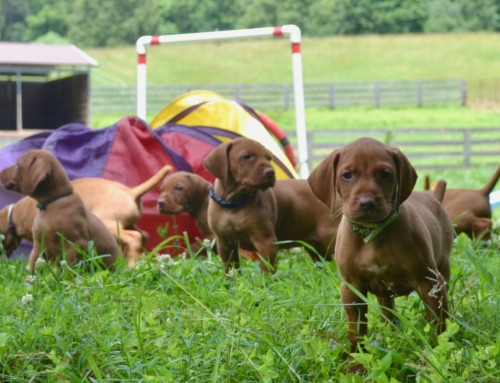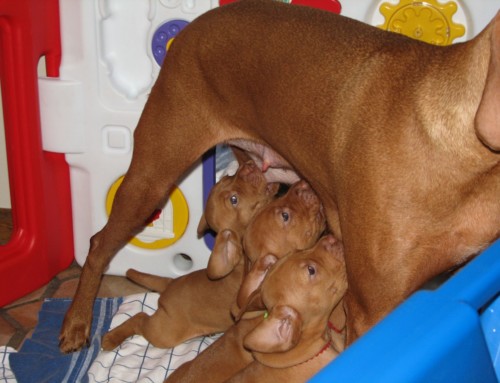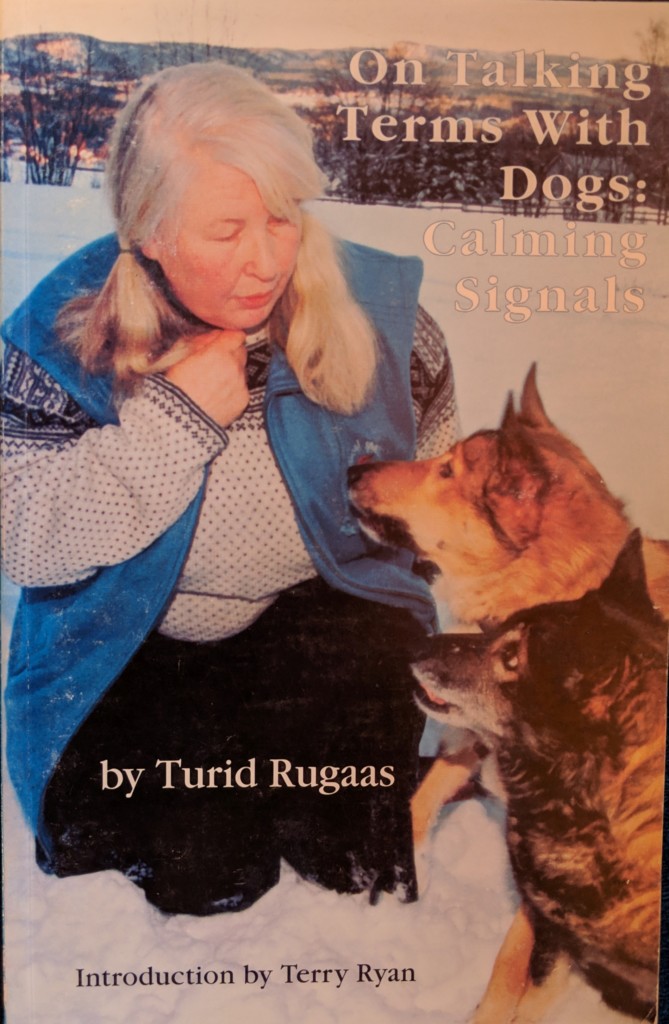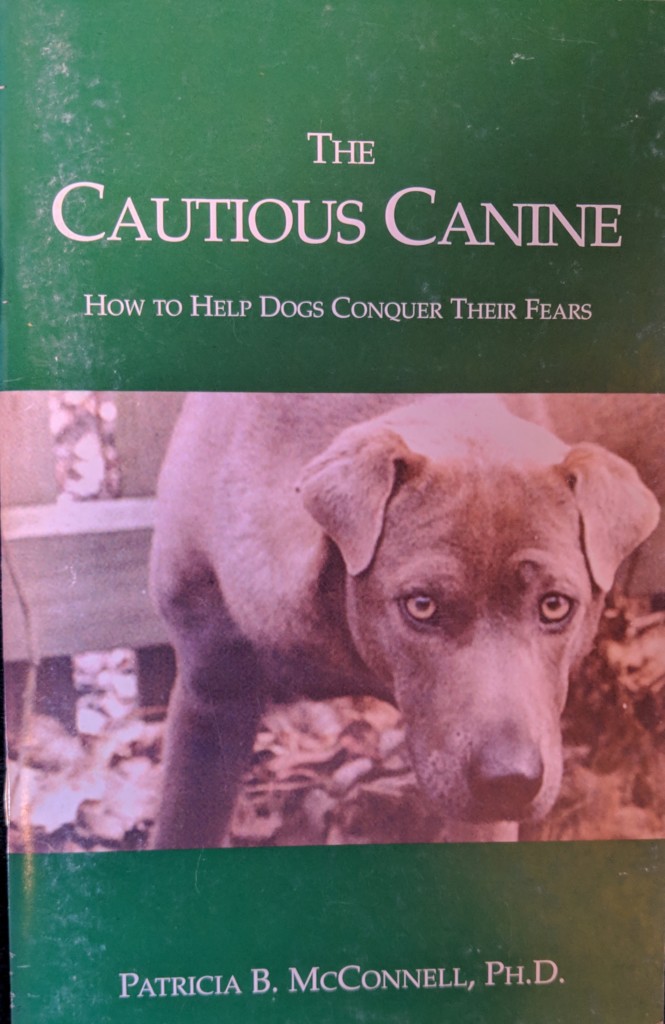DOG TRAINING OFFERED IN-PERSON AND ONLINEOur dog training services are delivered in almost any format that meets your needs. We have GROUP CLASSES at our indoor and outdoor facilities on our farm, ONLINE LIVE STREAMING classes, and SELF-PACED VIDEO-BASED training through our Online Dog Training Course. Our PRIVATE TRAININGS can be done in-home, outside, in public dog-friendly locations, at our facility on our farm, online via phone or video conferencing and through email. |
When looking to add a new dog to your household, there are several ways or places to find a new dog. You could get a dog from:
- a reputable breeder
- a backyard breeder or puppy mill
- a rescue group
- a local animal shelter
- a private re-home
- a pet store
- a stray dog you found who has no ID and are not able to find anyone to claim the dog
Did I miss any? Maybe, but these are the most common places to get a dog. But what is the best place to get YOUR next dog?
The answer, as always, is that it depends!
I have many clients who have only ever had “rescue” dogs that were obtained from shelters or rescue groups. I have other clients who had a bad experience with a rescue group or shelter and won't go back. Some of us have invited dogs into our homes from a variety of places.
Personally, my current and previous dogs have come from breed rescue groups, reputable breeders and one from a re-home of a client's dog who was not a suitable dog to live with small children.
Some people only adopt dogs from shelters or rescue groups in their efforts to provide a home for dogs who, for whatever reason, are in need of a new home. Others, who have sometimes had bad experiences with a previous “rescue” dog will not go back for fear of repeating that bad experience. Others have a favorite breed and go through a breeder to obtain their preferred breed of choice.
There is no one right answer. No matter which route you go, it's best to do your homework. What are the “must-haves” when it comes to your next dog? What are the “nice-to-haves” but not required? What are the “definite no's” for you? These will help you make that choice.
Do you want a puppy, an adolescent dog, an adult dog or a senior dog? If, for example, you want a senior dog so that you can help them live out the rest of their life in peace and surrounded by love, then rescue or a shelter is most likely your best or even only option. If you want a puppy, there are lots of ways to find a puppy.
If you want a certain breed or certain traits (no shedding, small, moderate energy, etc.) then a breeder or a specific breed rescue might be a good choice.
If you like leaving things to chance and aren't too picky, then a puppy from rescue that no one knows much about might be just for you!
If you want things to be as predictable as possible, do your research on breeds, select a breed or breeds that you prefer, and then find a breeder or a breed rescue to go through.
People often think that getting a puppy means you are “starting from scratch” and can mold that puppy into the perfect dog. Not true!! If you get a puppy of a specific breed that you want and from a reputable breeder, then your chances of getting what you want and predict, are much higher. But still not a guarantee! There is no such thing as starting from scratch. We still have genetics and upbringing prior to you bringing them home to deal with.
Nature or nurture? It is not an either or proposition. It is nature AND nurture. You cannot separate the two. You can shift things in your favor if you've done your research. But there are never guarantees. Golden Retrievers are always friendly and never aggressive. Not true. Pit bulls are dangerous dogs. Not true. Greyhounds, if let off leash, will run off and not come back. You can never trust them. Also not true. Labrador Retrievers love water. Also not always true. Sometimes. Yes. Not always. Breeds will tell you the tendencies of that breed, but not all dogs read the job description. Some of these things are true some of the time. Not all of the time.
Mixed breeds are healthier than purebred dogs. Not true. Some, sure. Some, not so much. Again, don't think in absolutes. There are exceptions to all the rules. And some of the rules you think you know are probably not true in the first place.
Animal shelters can be a great place to find your new dog. Is it only dogs with behavior problems in shelters? Is there something “wrong” with those dogs? Some definitely have some special needs. Some are just regular dogs who are in need of a new home through no fault of their own. Some were just a bad fit for their previous household. Some were from a home that had to make a very difficult decision that had nothing to do with the dog. There are so many different reasons that dogs are relinquished. Some have nothing to do with that dog.
And for some of the dogs with “behavior problems” according to their prior home might not be a problem for you. It might be an issue that does not affect you. Or it might be an issue that doesn't bother you like it did their previous home. It might be a dog who does not do well with cats, but you don't have any cats and do not plan to. It might be a dog who does not do well in a chaotic household but your household is pretty predictable and quiet.
Rescue groups can also be a great place to find your new dog. Many rescue groups use foster homes for their dogs. Are there some dogs with behavior issues or special needs? Of course. But again, there are also plenty of dogs who just were in unfortunate circumstances or where not a good fit, for whatever reason. The nice thing about dogs who are living in foster homes is that you can get a better idea of how the dog does in a home environment. That's a bit trickier to tell if the dog is currently in shelter because that environment is very different than a household.
You might have to do a bit more research when looking at dogs from a shelter or rescue group. Do they have a history on the dog? What do they know about the prior home or homes? Some dogs come with lots of info. Some have none.
Read through the descriptions that shelters or rescues have on the dog. Learn to read between the lines. What info do they have and what does that mean to you?
Let's look at an example, just doing a quick search for available rescue dogs nearby:
“Meet C, a big, fun-loving puppy with an adventurous spirit! C is always up for excitement and fun, making him a perfect companion for outdoor activities. He's already mastered “sit” and is highly motivated by treats, which makes training a breeze. If you're looking for a loyal adventure buddy who can keep up with your explorations and share in the thrill of the great outdoors, C is your ideal match.”
What does this description tell you about this dog? They do not list his age, but he is a puppy so a young guy. “Adventurous spirit” could mean high energy. Could mean he's getting into a lot of things. “Always up for excitement and fun” again sounds like a dog who is probably high energy and possibly getting into things. “A loyal adventure buddy who can keep you with your explorations and share in the thrill of the great outdoors” pretty much means this guy is going to keep you on your toes and you better be ready to help him burn a lot of energy. They discussed this in 3 different ways and it's really the only thing they said about him other than a quick mention about learning sit. Hoo boy, you better be ready!
We often see descriptions about dogs who are “shy” or a little bit cautious, or lots of other ways of saying that this dog might be fearful of people. Read between the lines. This could be a dog who just takes a bit to warm up to people. Could also be a dog who is fearful of people. Probably would not be good around children, maybe not good around visitors. Descriptions can sometimes give you lots of info or very little info. Learn to read between the lines of what they are telling you. Or are NOT telling you.
For example, if you are a household with young kids, I would NOT get a dog who is in any way listed as “shy” or “skittish” or cautious or likes a quiet home or is a “bit worried about loud noises” or any other things that imply they would probably not do well in a household with kids who can move fast, make loud noises and be unpredictable. I would want a dog who “loves everyone” or “loves kids” or other things that indicate this dog would do well with kids.
If you see a description that says the dog is best as an only dog, that's clearly a sign you should not already have a dog. But it might also mean that this dog could be reactive toward other dogs when you walk them. Were you prepared for a dog who might possibly bark and lunge at other dogs on walks and be difficult to control? It does not mean that will happen, but keep in mind that it might happen.
Look at a local rescue group website or a large database like petfinders or such and look at some descriptions. Read through and see what you can find that might be telling you more than you thought on the first read through.
Then compare those descriptions to that must-have, nice-to-have and definite-no list of yours. How do the dogs match up? Are you getting a better feel for which ones are worth finding out more about and which ones are easy to cross off from your possibility list?
There are lots of fabulous dogs out there. Be open to possibilities that you might not have considered at first. But be willing to do your homework so you are giving yourself the best possible chance of finding the dog that is perfect for you!
Our goal is to positively impact the lives of as many dogs and their families as we can, in part through our extensive library of video, infographics and text articles. |









Leave A Comment